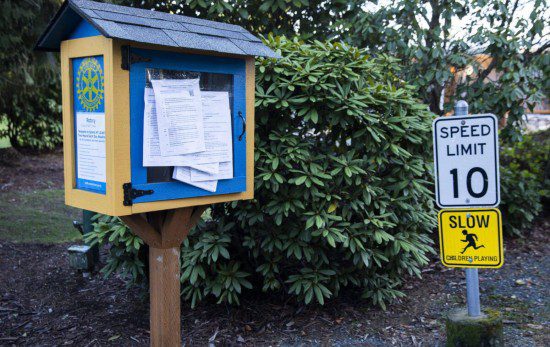The news alert for “manufactured housing” in my RSS feed is an endless series of stories of financial strain, despair, and instability.
Local reporters often do a fine job covering this story, putting human faces on many of the roughly 20 million Americans living in “manufactured housing communities” — aka “mobile home parks” or “trailer parks” — and how vulnerable these millions of people are to predatory rent increases and the perpetual threat of displacement.
Here are just a few of the recent examples.
From Oregon: “That means her rent went up more than 24% in one year, and it was legal.”
From Florida: “‘At first, it was at $795,’ Velasco said. ‘Then they bumped it to $843 within a few months, and then in August, they bumped it up again.'”
From Massachusetts: “Mill Pond, a 35-lot park in West Stockbridge, is facing an increase from $241 per month to nearly $800 in a request sitting in front of the rent control board. Residents at Ludlow’s West Street Village Mobile Home Community are faced with a 150 percent rent increase, according to WWLP-22 News.”
From Michigan: “Her rent, including the cost of the land where her home sits, consumes more than half of her monthly income. She pays more than $700 every month, up 57% since she moved in.”
From New Mexico: “Smith’s lot rental rate increased by nearly 25% since the new owners took over.”
From Pennsylvania: “The amount of the yearly rent increases, is just staggering.”
From Texas: “We’re talking, what, $20-25,000? Nobody around here has that kind of money. To me, no, six months is not enough.”
The situation, again, is that these folks own their homes, but not the land beneath those homes. Many of those homes cannot be moved or would cost tens of thousands of dollars to relocate. So this is textbook market failure — a situation in which no market forces exist to prevent landowners from drastically increasing rent or from just selling the land to developers and displacing every family in the community.
Lawmakers sometimes — albeit rarely — try to address this with patchwork regulations to limit future rent increases, or to mandate waiting periods before sale of the land can take effect. Sometimes these laws will also include limited assistance to families displaced by such sales.
Such laws can be helpful partial steps. The proposed Pennsylvania bill to regulate rent increases in manufactured housing communities would be a Good Thing. So would the Virginia bill that would allow local governments or nonprofits to purchse the parks.
But those partial steps don’t change the untenable basic situation, which is that these 20 million Americans own their houses, but have no control or influence or ownership of the land those houses sit on.
The best solution, then, is to change that. The nonprofit ROC-USA has been working at this for decades, creating “Resident-Owned Communities” by helping the owners of manufactured homes to purchase the land beneath their houses.
The Daily Yonder’s Lia Kvatum offers and excellent summary of how this works: “Building Stability Through Resident-Owned Mobile Home Parks.”
This works. And the idea is catching on.
“Mobile home residents are seizing the opportunity to buy their parks,” Jerry Cornfield reports for the Washington State Standard. A new state law offers incentives for park owners to sell to resident cooperatives, and residents are jumping at the chance: “Since mid-July, 11 properties have gone on the market in Washington and residents of seven are using tools from the three-month-old law to pursue ownership, the state House Housing Committee heard Thursday.”
Here’s another story from Gladstone, Oregon: “Starting with an outdoors meeting during the ice storm, residents decided to pursue a co-operative to hopefully take ownership of their community into their own hands.”
And one from Grants Pass, Oregon: “Residents of the Family Redwood Park, formerly known as the Redwood Estates, in Grants Pass celebrated their purchase of the manufactured home park today [Feb. 3], becoming the first resident owned community in the city.”
And one from Fresno County, California:
After years of fighting rising rents, a group of mostly Oaxacan farmworkers in Fresno County have done the seemingly impossible: purchased their mobile home park from its corporate landlord.
The group officially closed escrow on the park Thursday.
Previously called Shady Lakes Mobile Home Park, it will now be known as Nuevo Lago Mobile Home Park. The park will be run by a board of directors, made up of residents. Each household will have a small ownership interest in the park, which will be operated as a limited equity housing co-op. They’ll be able to make decisions about how much rent to charge, park finances and operating rules.
Marketplace wrote about that same park, noting that “In all, the entire process took five years, three nonprofits and the unflappable will of residents. They finally closed the deal in February.”
One of the best of these stories comes from Aina de Lapparent Alvarez of the Herald in Everett, Washington, “How Mill Creek mobile home residents bought the land under their feet.”

Alvarez makes it clear that there’s more to this than just financial security and stability for these families. This isn’t just about the “American Dream of home-ownership,” but about the American Dream of self-government:
In the fall, over 90% of residents voted in favor to purchase the property for $5 million just outside Mill Creek city limits, near the intersection of Seattle Hill Road and 35th Avenue SE.
They celebrated with pizza and two sheet cakes from Costco with icing that said: “Congratulations Sherwood Village Homeowners Cooperative.”
Since November, instead of lot rent, the residents have paid a mortgage for all of the land, with a 4.3% fixed-interest rate. When they bought Sherwood, they agreed to raise their monthly housing costs by an average of $232. With the help of ROC , Sherwood’s elected five-member board, all residents, handle most logistics — but residents must vote on anything that costs money or changes the bylaws.
The residents of Sherwood Village went from having a landlord to becoming their own village council, having to decide for themselves what is necessary, and what is fair, and how to make sure the snow gets cleared from the hill by the entrance to the community. These families are enjoying the new freedom that comes with accepting new responsibilities (and vice versa). They seem to be brimming with newfound pride, agency, and dignity.
The previous park owner, Wendell Verduin, was happy to sell the land to the residents. He’s retiring and recently also sold another of his properties to a resident co-op, but he notes the transition sometimes seems daunting to some residents:
“It’s not easy to get some of those folks, particularly if they’re retired and they’ve decided that they’re now going to lay back and not work so hard,” he said. “It’s a new experience. They don’t want to go into the management part, they don’t have time, they don’t understand that.”
Everything he describes there is true: Self-government is more work than being governed by others. Ownership means owning responsibility. When you’re a tenant, your life and future and budget are not in your control, but you’re also spared the responsibility of controlling them.
So this isn’t just about the 20 million Americans who live in manufactured housing. It’s really about how much freedom and responsibility all of us want to accept or to surrender. (Are landlords incompatible with democracy? Maybe not entirely. But they sure don’t help.)
Alvarez’ article also touches on those parks where ROC-USA’s model doesn’t seem possible as a solution — places where the cost of purchasing the land exceeds what the co-op of residents could ever afford, or where financing seems impossible to secure.
That gets to my main question about this model: Does it scale? Could it be repeated and reproduced nationwide? Or, to put it more ambitiously, is there any reason “we” couldn’t do this with every manufactured housing community in the country?
The undifferentiated “we” is in scare quotes there because such an effort would require multiple, different, mutually complementary antecedents for that pronoun. I’ll avoid a long detour here into another discussion of subsidiarity and just note that ultra-local self-government is not something that can be imposed by fiat from the top-down by the federal government and yet there are obvious and necessary steps the federal government could be taking to make such local self-government more possible and more likely. Guaranteeing low-interest or no-interest financing for example. Or either federal laws similar to the new laws in Washington state or federal policies encouraging states to pass similar laws.
Maybe in places where residents lack the financial capacity or the inclination to take on the responsibility of ownership, the transition could be supported and eased along by something like a temporary version of that Virginia proposal encouraging the ownership of parks by housing nonprofits.
I really don’t know whether this model could be implemented on a national scale. The number of success stories keeps growing, but the vital role that ROC-USA itself plays in those successes makes me wonder. Would doing this everywhere or almost everywhere require a massive scaling up of that unique nonprofit’s capacity? Or is it possible for other agencies — private and public — to replicate what they’re doing?
The bottom line is that the families in all of those success stories linked above are thriving while the families in all of the stories at the top of this post are suffering and struggling. I want to see more of our 20 million neighbors thriving and happy and proud like in those success stories and not desperate and despairing like in those other ones.
So whether or not “Let’s do this everywhere” is an easily or quickly achievable goal, I’d like to see it embraced as, at least, an aspiration.
I like to think this would also be a winning issue, politically, for any elected officials who got behind it in a meaningful way. That may be a bit of a pipe dream in that wealthy, exploitative land-owners donate a lot of money to campaigns and probably have more influence on election outcomes than 20 million people in a demographic that often doesn’t vote. But to be cynical about such things seems like just another way of helping out those wealthy, exploitative land-owners. Conceding beforehand that they just always and everywhere get whatever they want just ensures that they will continue, always and everywhere, to get whatever they want.
Screw those guys. Naive, quixotic pipe-dreams may seem less sophisticated than an all-knowing cynicism, but if sophistication helps those rat-bastard landlords even a little bit, then who wants to be sophisticated?













